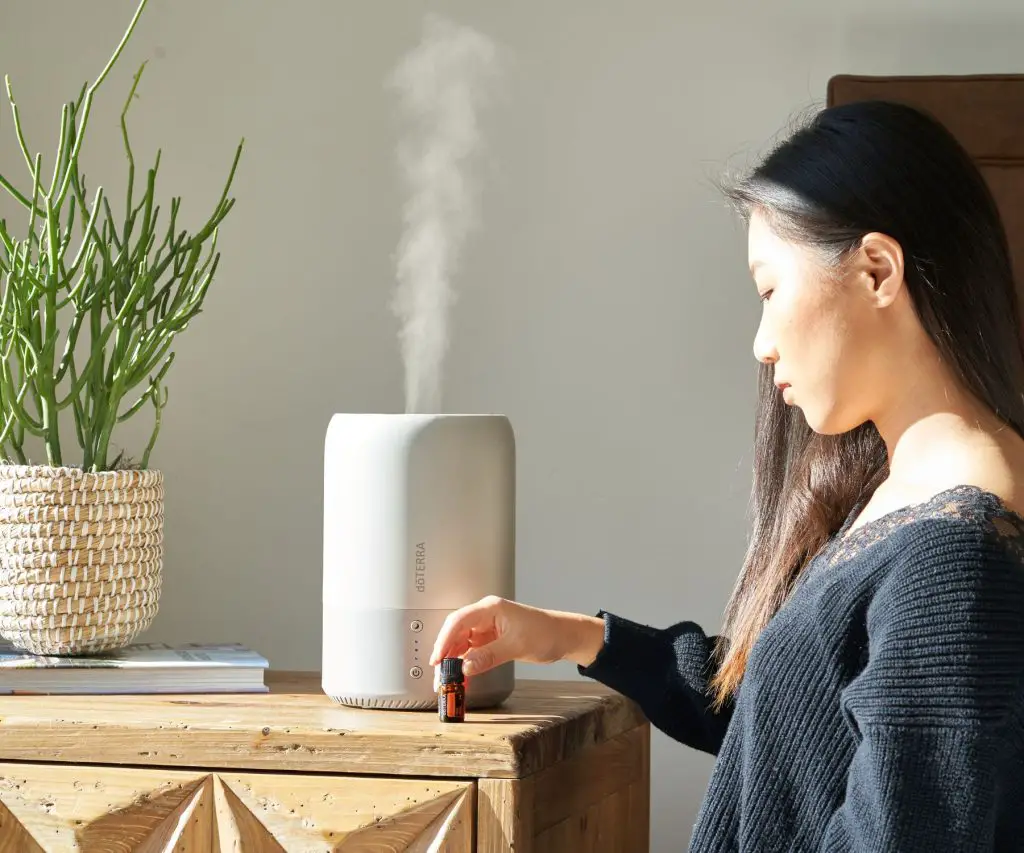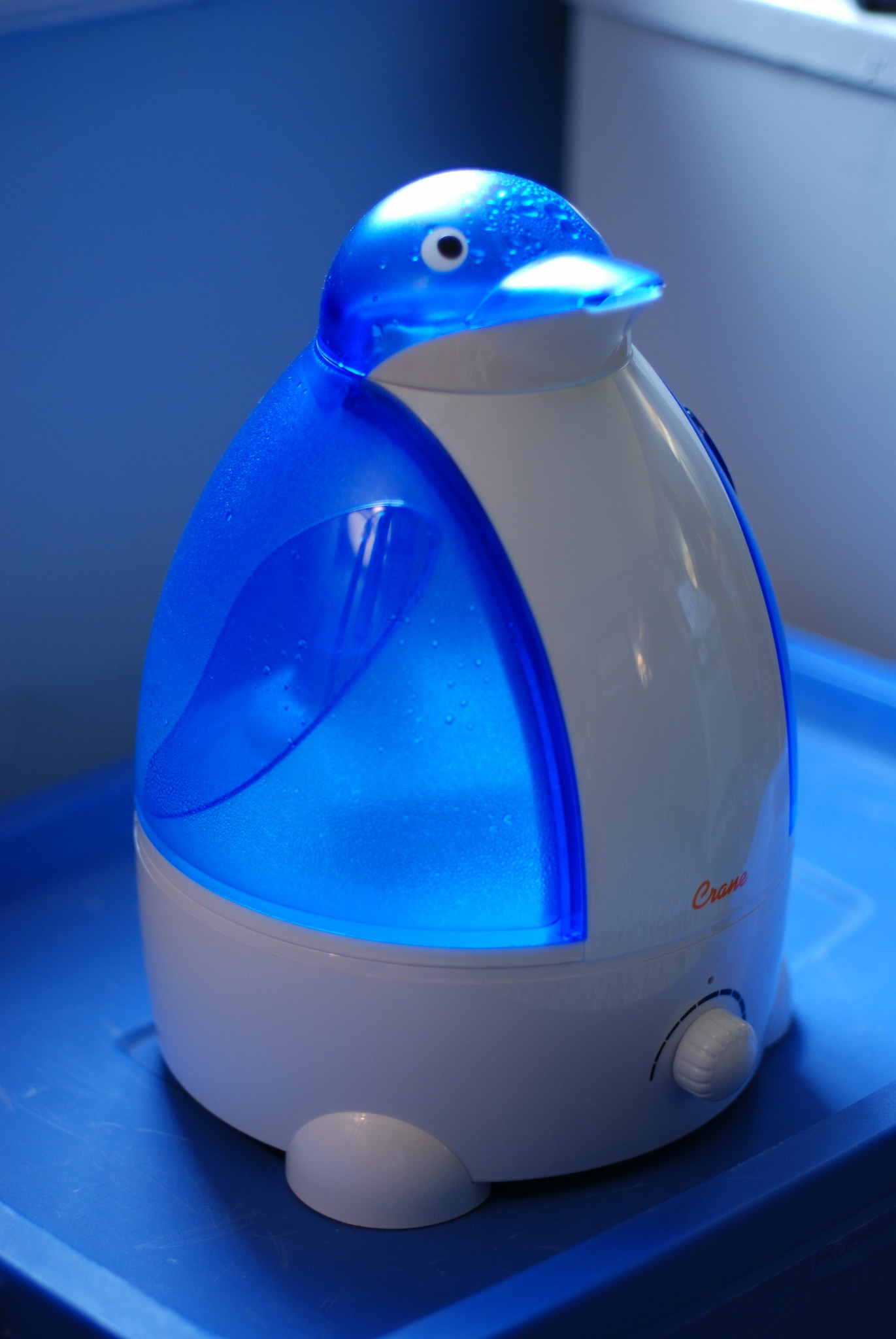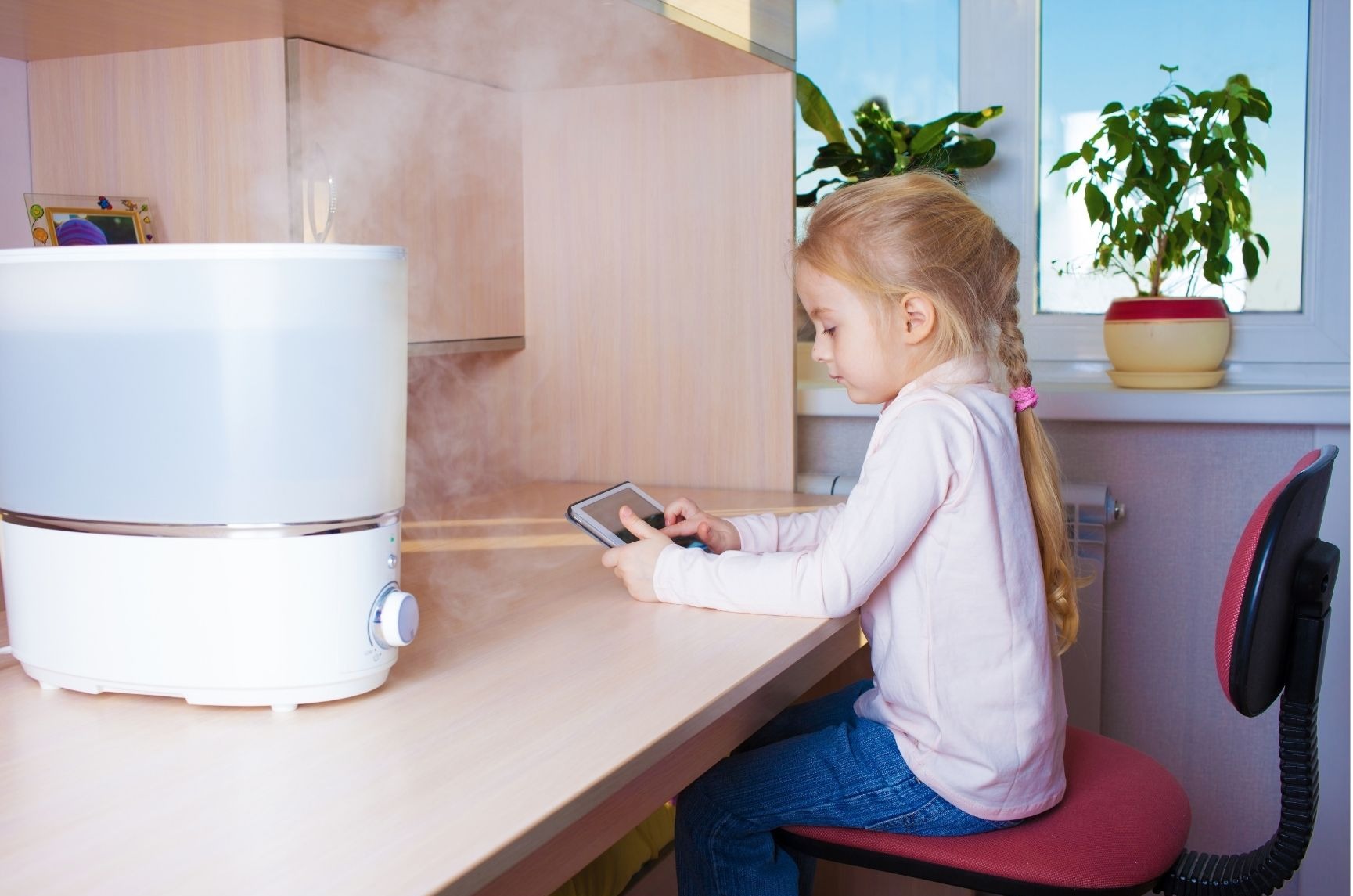Table of Contents
Can I Use A Humidifier With Saltwater?
 Yes, you can safely use saltwater in a humidifier to increase humidity levels and potentially enjoy other benefits. The salt in the water enables the humidifier to produce a finer water vapor mist. The tiny saltwater particles are more readily absorbed into the air compared to using regular tap water. This results in improved humidity output and better air moisture balance.
Yes, you can safely use saltwater in a humidifier to increase humidity levels and potentially enjoy other benefits. The salt in the water enables the humidifier to produce a finer water vapor mist. The tiny saltwater particles are more readily absorbed into the air compared to using regular tap water. This results in improved humidity output and better air moisture balance.
Introduction
Humidifiers are devices that increase moisture levels in the air inside your home or office. They work by dispersing a fine water vapor mist into the environment. There are many types of humidifiers, but some of the most common include:
- Warm mist humidifiers
- Cool mist humidifiers
- Ultrasonic humidifiers
- Evaporative humidifiers
While plain tap water is usually recommended, some humidifiers are specifically designed to use saltwater. Saltwater humidifiers have gained popularity in recent years due to potential benefits over regular water:
Improved humidity output – The salt enables the water to evaporate into smaller, lighter particles that are more easily absorbed into the air. This results in increased humidity levels.
Natural mineralization – Saltwater adds healthy minerals like sodium, chloride, magnesium, potassium and calcium into the air which can be beneficial.
Reduced bacteria growth – The antiseptic properties of salt make it more difficult for microbes and bacteria to grow in the tank. This helps keep the humidifier cleaner.
Air purification – The fine saltwater mist attracts and traps airborne dust, pet dander, pollen and other contaminants leading to fresher indoor air.
However, saltwater may not be ideal for all humidifiers, and special safety considerations are needed for optimal performance.1


Is Saltwater Safe to Use in Humidifiers?
While saltwater offers advantages, it also comes with potential downsides if not used properly. Key safety tips include:
- Use proper salt concentration – Too much or too little salt can clog the humidifier. Follow manufacturer guidelines on salt-to-water ratios.
- Clean frequently – Salt residues can quickly build up inside the tank and parts. Regular cleaning is essential.
- Avoid corrosion – Keep humidifier away from metal surfaces, electronics and hardwood floors as saltwater mist is corrosive.
- Turn off when not in use – Leaving it running 24/7 can lead to excess moisture and mold growth. Use a built-in humidistat or timer.
- Replace filters – Saltwater causes faster wear on wicks, filters and membranes. Replace as needed.
- Check manufacturer guidelines – Not all humidifiers are designed for saltwater use. Make sure yours is compatible.
If the proper precautions are taken, saltwater can be used safely in many humidifiers to increase the benefits.
Benefits of Using Saltwater in Humidifiers
Here is a more in-depth look at some of the main advantages of using saltwater over regular tap water in compatible humidifier models:
Improved Humidity Output
One of the biggest benefits of using saltwater in humidifiers is increased moisture output. Here is why it works better:
- Salt enables water to evaporate into finer, smaller particles that are more readily absorbed into the air.
- The extra ions in saltwater make the water vapor particles lighter and able to suspend longer in the air.
- Saltwater particles have more surface contact area allowing moisture to diffuse faster.
- The salt attracts moisture from the air and surfaces, recycling it back into the air.
With enhanced evaporation and diffusion, saltwater can increase humidity levels by up to 3-4% over regular tap water. This extra moisture can make a noticeable difference in comfort and health benefits.
Natural Mineralization of Air
When saltwater evaporates into the air, it releases natural healthy minerals including:
- Sodium
- Chloride
- Magnesium
- Calcium
- Potassium
- Iodine
Inhaling air enriched with these minerals can have holistic health benefits. The minerals may help strengthen respiratory functions and make breathing easier. Skin may retain more moisture and have a smoother appearance.
Saltwater humidity is similar to the natural mineral-rich moisture in coastal climates which is believed to promote wellness. The salubrious effects can enhance relaxation, sleep quality, mental performance and overall wellbeing.
 Reduced Bacteria and Microbe Growth
Reduced Bacteria and Microbe Growth
Tap water sitting stagnant in a humidifier tank can breed harmful bacteria, fungi and molds such as:
- Escherichia coli
- Legionella
- Pseudomonas
- Aspergillus
The antimicrobial properties of salt make it harder for these microbes to thrive and reproduce. Saltwater contains sodium ions that disrupt microbial processes stopping propagation.
Using saltwater instead of regular tap water can inhibit up to 98% of bacterial growth. This helps keep the humidifier cleaner and makes the mist less likely to blow contaminants into the air.
Natural Air Purification
Dispersing a fine cold mist of saltwater into the air can help attract and trap airborne particles like:
- Dust
- Pet dander
- Pollen
- Smoke
The moisture in the air causes these particles to amalgamate and become heavy so they drop out of circulation.
Salt is also hygroscopic meaning it draws moisture out of the air and surfaces. This moisture evaporation Recirculates dust and allergens back up into the air to be captured again.
The continuous cycle of moisture evaporation, particle amalgamation and recirculation results in effective natural air purification.
Saltwater Humidifier Safety Tips
While saltwater offers advantages, it also requires some special considerations to avoid potential downsides:
Use Proper Salt Concentrations
Adding too much or too little salt can cause problems:
- Too little salt reduces benefits and bacteria inhibition
- Excess salt can corrode parts and leave buildup behind
Follow manufacturer guidelines for ideal salt-to-water ratios. A good rule of thumb is 1-2 tablespoons of salt per gallon of water.
Use purified or distilled water to prevent limescale buildup. Mix until salt fully dissolves.
Clean Regularly
Evaporated saltwater leaves mineral residues behind that can quickly clog up the tank, filters and moving parts.
To prevent buildup:
- Clean every 1-2 weeks with mild soap and vinegar solution
- Disinfect all parts and rinse thoroughly
- Replace filters and wicks frequently
Proper cleaning is imperative when using saltwater to keep the humidifier functioning properly.
Avoid Corrosion with Placement
The saltwater mist is electrically conductive and can be corrosive to metal components. Avoid placing near:
- Electronics like laptops and televisions
- Musical instruments
- Hardwood floors and furniture
Keep out of bedrooms as the mist settles on fabrics and bedding. Place in large, open rooms like living rooms or dens.
Use humidity sensors to limit moisture near walls and belongings. Point mist away from furnishings.
Use Timers and Humidistats
Leaving an evaporative humidifier running nonstop can oversaturate room. The excess moisture encourages mold growth.
Use built-in humidistats to shut off when optimal humidity is reached. Utilize timers to automatically turn on and off as needed.
Only run the humidifier when rooms are occupied and keep interior doors open to balance moisture throughout the home.
Maintenance Tips for Saltwater Humidifiers
To keep a saltwater humidifier working efficiently and avoid potential problems, proper maintenance is essential:
- Clean tank weekly – Remove scale, sediments and salt buildup using mild detergent and soft brush. Rinse thoroughly.
- Change filters often – The wicks, filters and membranes wear out faster with saltwater. Replace every 2-4 weeks.
- Use purified water – Fill tank with distilled or demineralized water to limit mineral deposits.
- Dry out unit – Remove wicks, open tank and let all parts dry completely between uses to prevent mold.
- Soak parts in vinegar – To remove stubborn salt deposits, soak the tank and parts in white vinegar and then scrub clean.
- Check for leaks – Examine for cracks and leaks around the tank. Seal any openings that could lead to internal damage.
Proper maintenance will prolong the machine’s lifespan and prevent performance issues.
Choosing the Best Saltwater Humidifier
If you want to use saltwater, choose a humidifier designed for it. Features to look for include:
- Adjustable output – Models with variable mist settings allow customizing moisture levels.
- Large tank capacity – A bigger tank requires less frequent refills. Look for at least 2 gallons.
- Built-in humidistat – Automatically turns off when preset humidity level is reached to prevent over-saturation.
- Antimicrobial materials – Tanks and parts made from naturally antibacterial materials like stainless steel.
- Easy cleaning – Models with removable tanks and dishwasher-safe parts allow thorough cleaning.
- Warranty – Look for at least a 1-year manufacturer warranty.
Saltwater Humidifier Alternatives
While saltwater offers some advantages, it may not be ideal for all situations. Other humidifier options include:
Warm mist – Heats water to produce steam. Helps raise air temperature. Good for colds.
Ultrasonic – Uses high-frequency vibrations to create micro-fine cool mist. Whisper quiet operation.
Evaporative – Fan blows air through wet wicks. No mist. Good for large spaces.
Impeller – Rotating disks fling water to produce cool mist. Most affordable option.
Compare the pros and cons of each type of humidifier to choose what best fits your health needs and interior space. Tap water can be used in most models for pure simple humidification.
Conclusion
Hopefully this provided a comprehensive overview explaining how to use a humidifier with saltwater. The key takeaways include:
- Saltwater enables humidifiers to output higher humidity levels thanks to increased evaporation and diffusion.
- Added minerals from salt provide natural air purification benefits.
- The antimicrobial properties inhibit bacteria growth keeping mist cleaner.
- Proper maintenance and cleaning is crucial when using saltwater to prevent buildup issues.
- Avoid potential corrosion from saltwater mist through careful humidifier placement.
- Only use saltwater in compatible humidifier models specifically designed for it.
While saltwater takes extra precautions, overall it can be a great natural way to maximize humidification from your unit. Just be sure to follow all manufacturer guidelines and safety tips outlined above to use it properly. Enjoy the benefits of balanced air moisture and improved wellbeing!



 Reduced Bacteria and Microbe Growth
Reduced Bacteria and Microbe Growth





